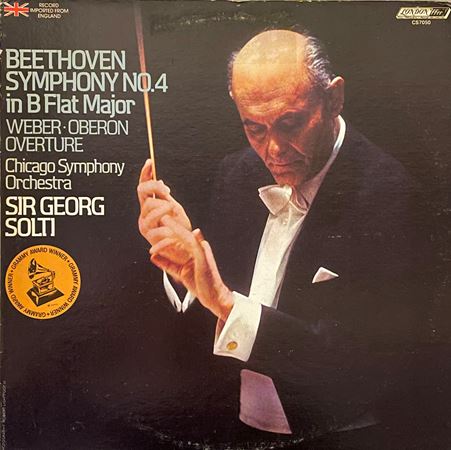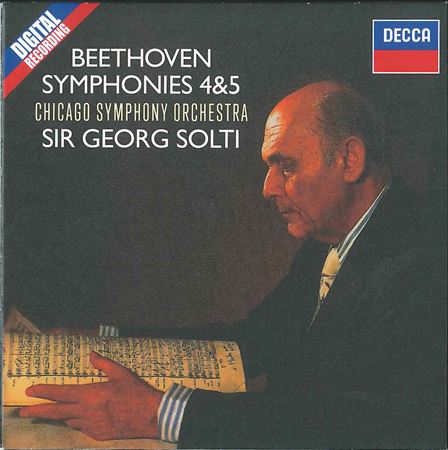Detail of title page of Beethoven’s Fourth Symphony
Theodore Thomas Collection, Rosenthal Archives of the Chicago Symphony Orchestra Association
Beethoven’s Fourth Symphony — according to Theodore Thomas, the Chicago Symphony Orchestra‘s founder and first music director, in Talks About Beethoven’s Symphonies — is “a work as full of beauties, novel of their kind, as the Eroica, but expressing no worldly program; singing instead the songs of nature—the music of the soul. . . . In consequence, he has given us, in the Fourth Symphony, a song of beauty such as no one else has ever written, presenting absolute novelty of color and creating an atmosphere in music justly termed ‘romantic,’ a romanticism parallel to that of Schiller in literature.”
“Generations of music lovers have described — and sometimes dismissed — Beethoven’s even-numbered symphonies as lyrical and relaxed compared to their spunky, coltish, odd-numbered neighbors. The Fourth, in B-flat major, has suffered from that fate perhaps more than any,” writes CSOA scholar-in-residence and program annotator Phillip Huscher. “Schumann was perhaps the first musician to warn us not to overlook the Fourth’s own special qualities: ‘Do not illustrate his genius with the Ninth Symphony alone, no matter how great its audacity and scope, never uttered in any tongue. You can do as much with his First Symphony, or with the Greek-like slender one in B-flat major!’”
Founder and first music director Theodore Thomas first led the Chicago Orchestra in Beethoven’s Fourth Symphony on March 17 and 18, 1893, at the Auditorium Theatre.
Sir Georg Solti and the Chicago Symphony Orchestra and Chorus first recorded Beethoven’s nine symphonies between May 1972 and September 1974 for London Records. The recordings were ultimately released as a set (along with three overtures: Egmont, Coriolan, and Leonore no. 3); that set won the 1975 Grammy Award for Classical Album of the Year from the National Academy of Recording Arts and Sciences. The Fourth Symphony was recorded at Medinah Temple on May 13, 1974. Ray Minshull was the recording producer, and Kenneth Wilkinson and James Lock were the balance engineers.
Between September 1986 and January 1990, Solti and the Orchestra and Chorus recorded Beethoven’s complete symphonies a second time, again for London Records; and again, the recordings were ultimately released as a set (along with two overtures: Egmont and Leonore no. 3). The Fourth Symphony was recorded in Orchestra Hall on September 21 and 22, 1987. Michael Haas was the recording producer and James Lock was the balance engineer.


This article also appears here.



